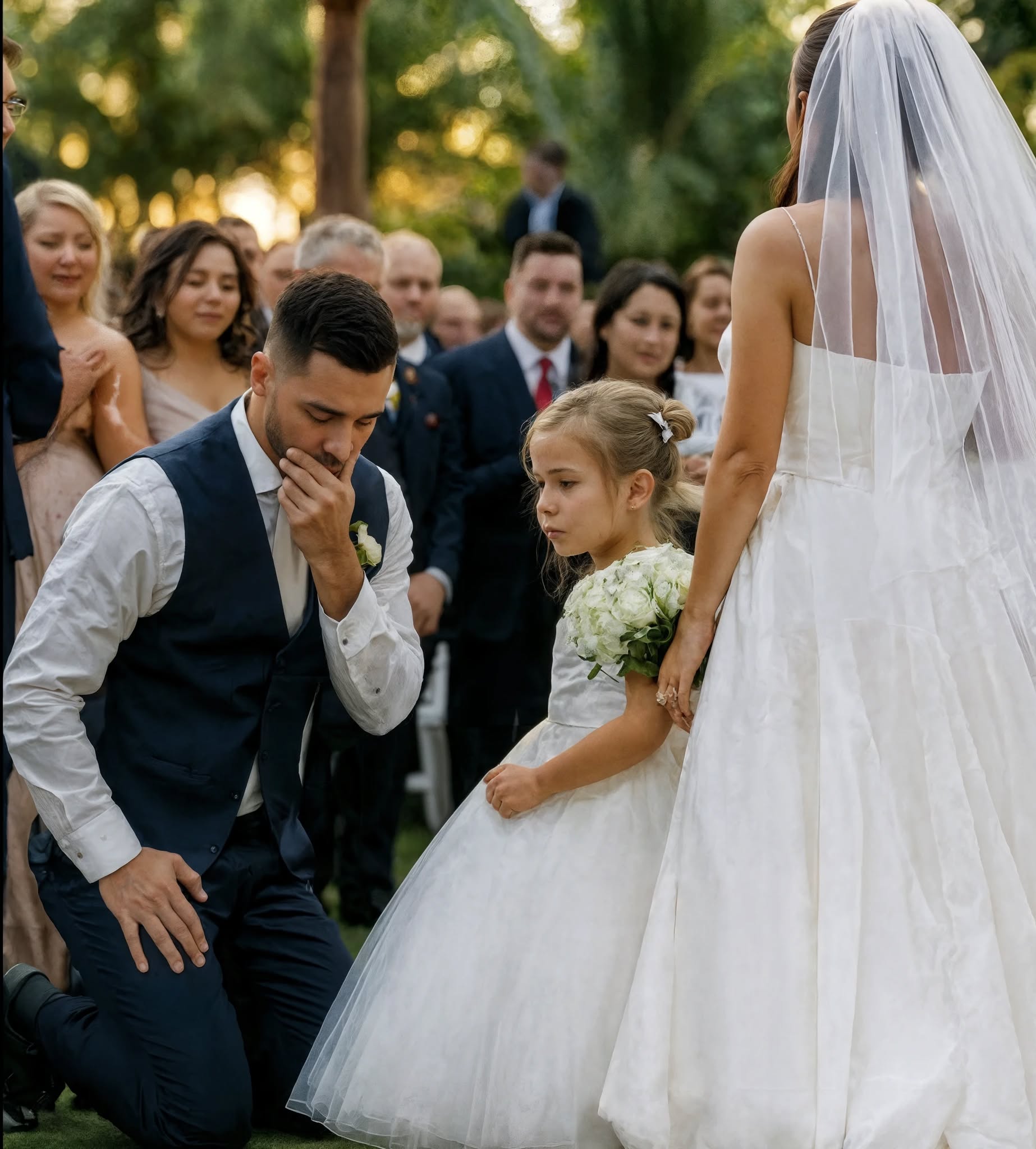Five years after my wife passed, my daughter and I hesitantly accepted an invitation to my best friend’s wedding. I didn’t want to go—I still wore grief like a second skin—but my friend, Marcos, insisted. He said it might help me, though I wasn’t convinced.
When I arrived at the wedding venue in central Madrid, the glamour almost made me physically recoil. I wore a worn sweater and jeans. The guests buzzed around me in silk gowns and tailored suits, oblivious to anything but their own images.
But as I stood near the terrace, feeling out of place, something caught my eye.
A woman—about my age—slipped quietly into a corner. She held herself with poise, yet there was a fragility about her. When our eyes met, time stuttered.
“Who’s that?” I asked Marcos.
He followed my gaze, then lowered his voice. “Someone I met at the gallery last week—Lucía. Her family opens doors, Javier. Not ours.”
I wasn’t listening. I walked toward her, heart pounding.
She smiled, and everything inside me unsettled.
“I’m Javier,” I said.
“I’m Lucía,” she replied, her voice curt but warm. “I’m not great with crowds.”
We talked under fairy lights, in broken arcs of laughter and shared stories. I found out she worked at a local gallery, loved small cafés and old architecture. I told her about my daughter, Alma, and the raw quiet our life had become since her mother’s passing.
When I walked her to her car, the edges of the night were becoming soft. We both knew something had changed in us.
Six months later, we were married in a modest ceremony—no glitter, no gossip. Lucía’s parents weren’t there. She didn’t cry. She squeezed my hand and said, “I don’t need their money to be rich.”
For a few wonderful years, we built a life. I worked as a graphic designer, Lucía loved her gallery job. Our daughter, Alma, grew in laughter and light. We lived in a modest apartment filled with paint-stained pillows and handmade toys.
But then, cracks appeared.
It began with my dream project: creating a community center for underserved children. Lucía responded with enthusiasm at first. But as my evenings extended and my frustration showed, I noticed her smile fade.
One night, over simple pasta and muted noise, she said, “My college friend just spent the weekend on Ibiza. You know how they live.”
I squeezed her hand. “We can find our own joys, here.”
She pulled away. “That’s easy to say when you’re comfortable. I’m tired of being second-best.”
The air grew taut between us. She blamed our modest means for everything—our arguments, our exhaustion, my career, her frustration. That biting phrase haunted me: “Maybe I should’ve chosen richer.”
I tried to talk. I tried to promise. But the well of her disappointment was deep.
One afternoon, I came home early. I carried tulips—her favorite. The apartment was silent, darker than usual. No dishes in the sink, no child’s laughter.
My heart dropped when I saw the front door ajar.
I stepped inside. Her clothes were gone. The bed was stripped. In the cradle, I saw the note:
“I need something more. I choose another life. I’m leaving Alma with Mrs. Martínez in 503. I’m sorry.”
I dropped to my knees, breathing shallow.
I called. I texted. Every message went unanswered. I rushed to her parents’ house, desperate.
Their silent guard let me into the marble foyer. Inexplicably, they invited me to the living room.
Her father sat across from me, arms folded.
“I’m sorry you’re hurting,” he said coolly. “But Lucía made a choice to walk away. Our family has decided—no dialogue. No reconciliation.”
He rose. “You will not see her. Not ever.”
Two days later, the divorce papers arrived. I read them with my daughter in my lap—no custody, no weekends. Alma’s sobs tore through me like jagged glass.
I held her tight all night.
Years passed. I raised our daughter on my own. We moved to a quieter neighborhood. I designed books. I taught, I volunteered. I grew into the father I needed to be.
One day—I must never have told anyone—I was giving a lecture at a local community center about design and empathy. As I walked in, I met Lucía’s face in the crowd. A shock that roared inside me. She held a baby—another daughter. The eyes were the same.
Her lips trembled.
I kept speaking for the sake of the children, but my heart raced like fire.
When the session ended, she slipped to me.
“I tried… but I realized I was wrong,” she whispered.
I closed my eyes briefly, feeling the ache and the tenderness collide.
She lifted her second child. “She’s your daughter too. She’s my redemption. I know I have no right, but—I’m asking for a chance to be part of her life.”
I stared at her, memories flooding: that night under the terrace lights, those fragile quiet laughter, the baby in my arms now.
I exhaled, and for the first time in years, peace settled in.
“Let’s talk,” I said. A mother daughter reunion, hanging on hope.
